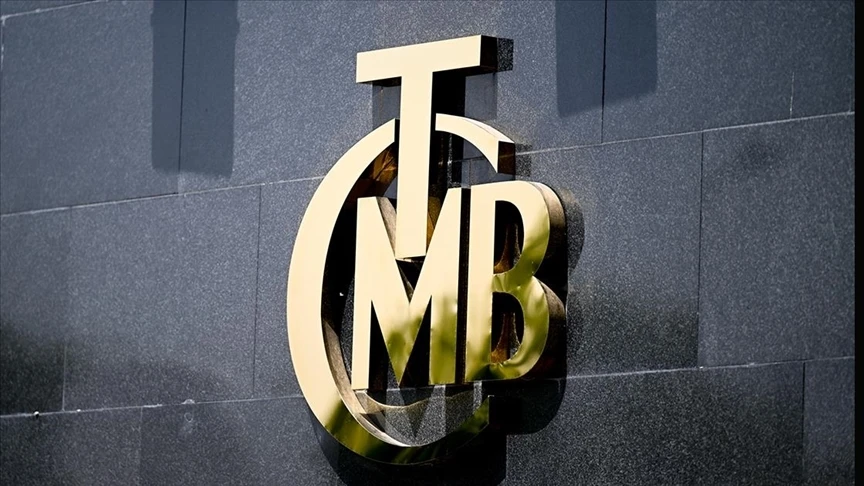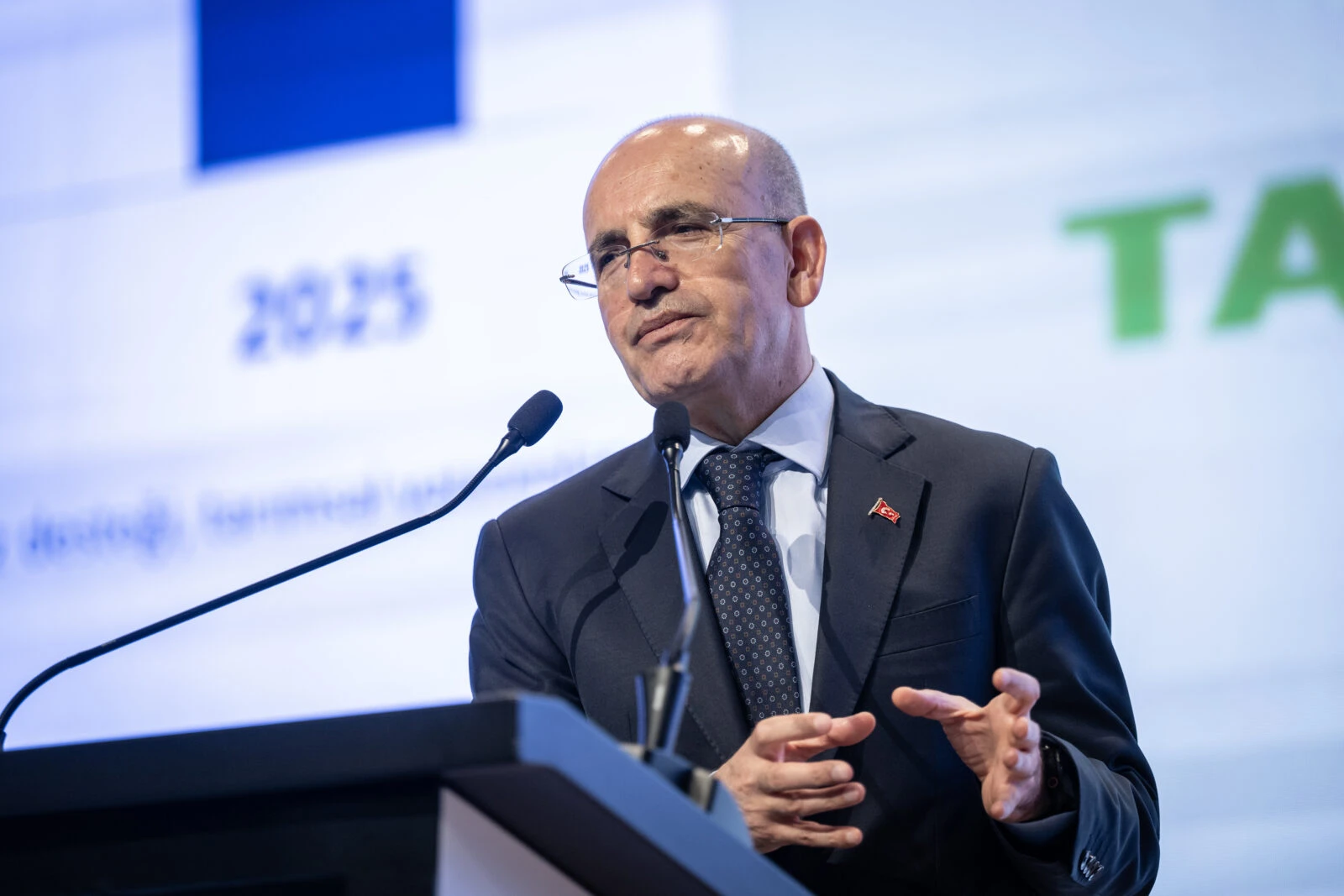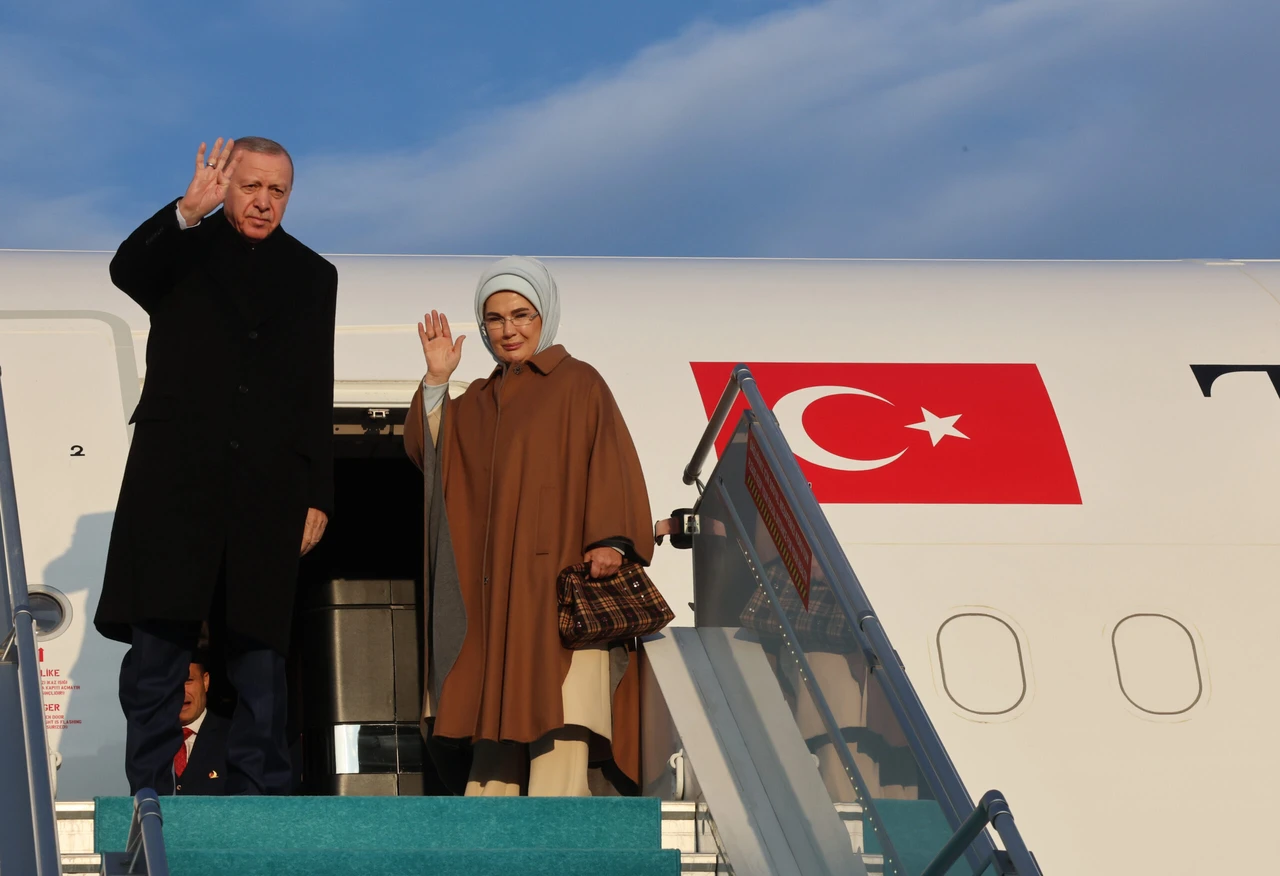Cost of defending lira: Turkish central bank reserves drop below $150B
 File photo shows Central Bank of the Republic of Türkiye (CBRT) sign at the entrance of its headquarters in Ankara, Türkiye. (AA Photo)
File photo shows Central Bank of the Republic of Türkiye (CBRT) sign at the entrance of its headquarters in Ankara, Türkiye. (AA Photo)
The Central Bank of the Republic of Türkiye’s (CBRT) total reserves dropped to $147 billion as of April 11, falling back below the $150 billion level for the first time since June 2024.
According to the bank’s weekly statistics released on Thursday, as of April 11, the CBRT’s gross foreign exchange reserves fell by $9.83 billion to $68.01 billion. On April 4, gross reserves had stood at $77.84 billion.
During the same period, gold reserves rose by $3.06 billion, from $76.42 billion to $79.48 billion. As a result, the central bank’s total reserves declined by $6.77 billion week-on-week, from $154.26 billion to $147.49 billion.
This marks a decline of over $26 billion since the peak of $173 billion recorded on February 14. Most of the drop is attributed to recent domestic and international market fluctuations that have challenged the Turkish lira’s stability, particularly following a corruption probe targeting Istanbul Mayor Ekrem Imamoglu and U.S. President Donald Trump’s reciprocal tariffs, which have strained global trade ties.
On the other hand, according to the Weekly Securities Statistics, non-residents sold a net total of $3.1 billion in stocks and government debt securities within a single week. Equity sales amounted to $293 million, while outflows from government debt securities (GDSs) exceeded $2.8 billion.
Since March 14, the total value of shares and debt securities held by non-residents has dropped by $18 billion—from $57 billion to $39 billion—while net sales have reached $9.6 billion.
‘Reserves are meant to be used’
Following the market turmoil after Imamoğlu’s detention on March 19, the Turkish lira’s depreciation stabilized at around 4% after initial losses exceeded 12% within a short period. The central bank eased the unprecedented rush to foreign currencies by conducting major reserve sales. According to business-focused Bloomberg, the CBRT has sold around $50 billion since then.
Treasury and Finance Minister Mehmet Simsek responded to criticisms on April 7, saying, “Reserves are a buffer against internal and external shocks. Of course, reserves are accumulated to be used.”

One of the three major credit rating agencies, Fitch Ratings, expressed confidence in Türkiye’s economic management in its latest report on April 11, stating, “Türkiye has the capacity to manage the current level of volatility given the stated commitment to the current policy mix.” However, Fitch also noted that the state of international reserves would be a key factor in assessing the country’s credit rating, which remains at “BB-/Stable.”
Meanwhile, the Turkish central bank raised its policy interest rate to 46% with a 350-basis-point hike on Thursday, reversing the easing cycle that had lasted for three meetings since December. The move surprised markets, which widely expected the rate to be held at 42.5%.
The hike is seen as an attempt to restore confidence in Turkish markets. Economists largely welcomed the decision, praising the monetary tightening efforts. It is also viewed as a positive signal for the outlook of international reserves, which are expected to see an uptick by the next monetary policy meeting on June 19.



